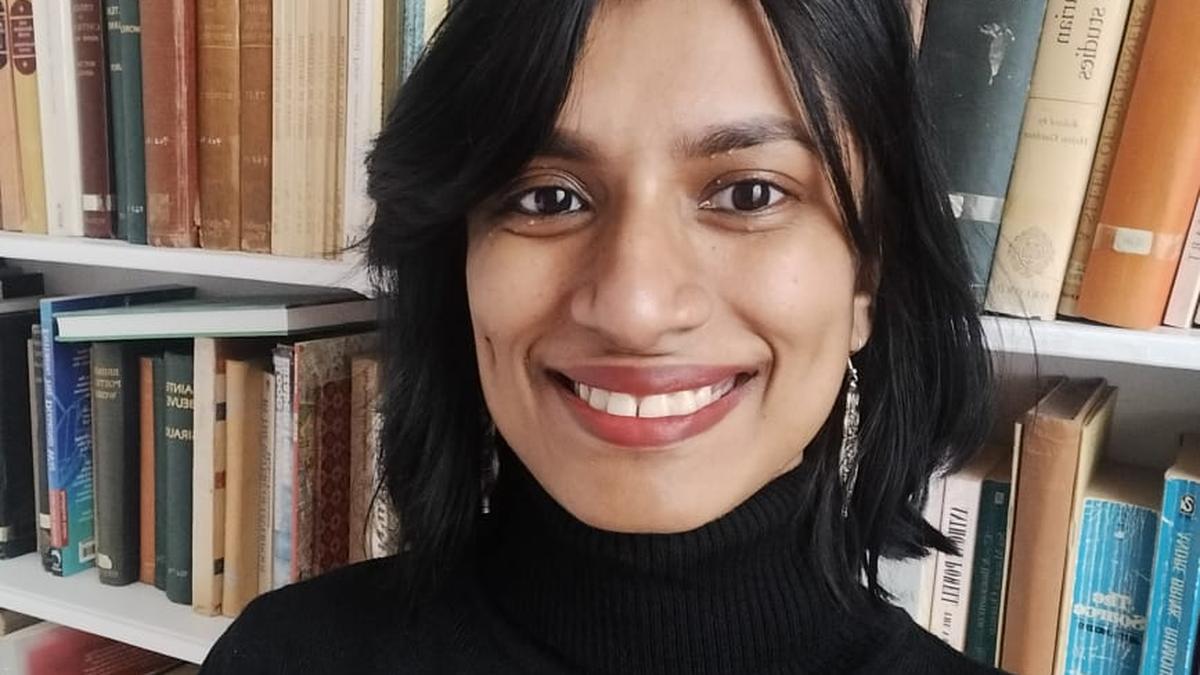
She wrote her M.A. Thesis on ‘Legal Gazing: How Indian Courts Look at Waste Pickers’. She looked at the world of waste and the labour that goes behind it and interrogated how Indian Courts describe waste-pickers. Since then Ms. Nakkeeran has worked around waste and urban governance. | Photo: Special Arrangement
Barathi Nakkeeran, 32, who hails from Coimbatore, has been selected as a PhD candidate at The Institut de recherche pour le développement (IRD) headquartered in Marseille, France. She will be studying the legal and spatial marginalisation of waste workers in Chennai. “My larger interest has always been to look at a city through its waste”, said Ms. Nakkeeran. But the road to this PhD wasn’t a direct one. She first chose to move away from a career in corporate law.
After completing high school, Ms. Nakkeeran took the Common Law Admission Test (CLAT) in 2011 and studied five years of law at NLU Jodhpur. She then worked at a corporate law firm as a securities market lawyer. “During my law school years, that was what everyone aimed for. It was a natural progression with a decent salary. I got a job at a good firm”, she said. But Ms. Nakkeeran soon realised that the world of corporate law was not for her. “It took a toll on me mentally and physically. So I decided to rethink my trajectory”, she said.
Ms. Nakkeeran grew up in a family of academics and was interested in working closely on socio-legal issues. She took her time to explore the same through writing projects or opportunities at NGOs and more. She took the final plunge with admission for a Master’s in Gender Studies at Dr. B. R. Ambedkar University Delhi. “People may think of law and social sciences as similar disciplines, but there was a lot that I had to figure out, and this course helped the lawyer in me figure out her interests better”, she said.
She wrote her M.A. Thesis on ‘Legal Gazing: How Indian Courts Look at Waste Pickers’. She looked at the world of waste and the labour that goes behind it and interrogated how Indian Courts describe waste-pickers. Since then Ms. Nakkeeran has worked around waste and urban governance.
Taking a step forward, Ms. Nakkeeran got admitted to an MPhil program at Oxford in the fall of 2023. Her MPhil Thesis: ‘Empire of Dirt: Colonial Madras City through its Waste’, looked at colonial Madras City through a historical investigation of its waste. “ I went to Oxford when I was 31. I had to break some savings and I applied for partial scholarships, which made it affordable to go. It was my parents who were very supportive through the process, otherwise, it would have been a distant dream.”, she said.
Ms. Nakkeeran was at the same time applying to IDR for a research grant. During 2022, Ms. Nakkeeran was working with the Centre for Policy Research. “They have a bright urban governance team. Someone from the team, I had built a rapport with told me about this grant. She is now my mentor. I didn’t know if I could get a grant in a country I am unfamiliar with. I gave it a shot and I got a result in November when I was still at Oxford”, she said.
ARTS Programme by IRD
Ms. Nakkeeran has been selected for the Research Grants for a Thesis in the South – ARTS program. “It is for researchers from the global south, who want to do field work as well as get the opportunity to come to France and access resources at the university. I didn’t want to do armchair research, so this program works best for me”, she said.
One of IRD’s main objectives is to democratise science and scientific training at all levels. In this context, the public institution trains and assists scientists, students, and professionals through all its projects.
The ARTS fellowship program was started per the United Nations’ recommendations concerning the Sustainable Development Goals (SDGs). It is part of IRD’s work to strengthen research capacities through training and knowledge transmission activities.
Funding is granted for a maximum of 36 months and allows the PhD student to: Carry out a PhD in a professional context, access the intellectual and logistical resources of a co-supervised project (IRD and a partner in the Global South) and a quality working environment, acquire the skills necessary for exercising research professions, take part in cross-disciplinary training and networking activities
The application process is composed of three stages: Identify a PhD supervisor in an IRD laboratory with co-supervisor, Co-construct the PhD project with him or her and submit it to IRD for selection.
The monthly amount of the grant is calculated according to the place of stay and the number of days spent there. If the PhD student is co-funded, the allowance will be paid in addition to the ARTS scale.
Three things to keep in mind while applying for a PhD
Ms. Nakkeeran highlights three things to ensure when applying for a PhD. Apply to a good university that will be able to fund you. “In the UK and Europe, many universities don’t fund you. Ordinary people can’t get by”, she said.
The PhD proposal should be an area of interest for the candidate, at least 60%, if not more. It should be with a mentor or supervisor, who understands you and mentor you and. you can trust your work with them.
Ms. Nakkeeran says that Indian supervisors don’t look at PhD candidates as senior researchers. “Abroad they look at you as an ongoing expert, for which they pay decent money. You don’t have to scramble for money with multiple side gigs”, she said.
Published – December 16, 2024 07:11 pm IST


